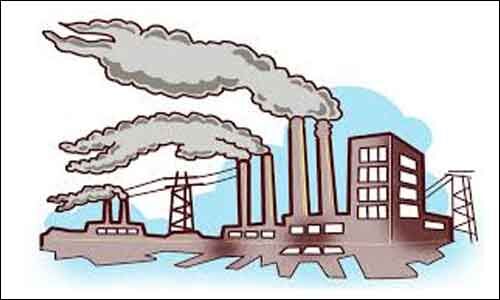- Home
- Medical news & Guidelines
- Anesthesiology
- Cardiology and CTVS
- Critical Care
- Dentistry
- Dermatology
- Diabetes and Endocrinology
- ENT
- Gastroenterology
- Medicine
- Nephrology
- Neurology
- Obstretics-Gynaecology
- Oncology
- Ophthalmology
- Orthopaedics
- Pediatrics-Neonatology
- Psychiatry
- Pulmonology
- Radiology
- Surgery
- Urology
- Laboratory Medicine
- Diet
- Nursing
- Paramedical
- Physiotherapy
- Health news
- Fact Check
- Bone Health Fact Check
- Brain Health Fact Check
- Cancer Related Fact Check
- Child Care Fact Check
- Dental and oral health fact check
- Diabetes and metabolic health fact check
- Diet and Nutrition Fact Check
- Eye and ENT Care Fact Check
- Fitness fact check
- Gut health fact check
- Heart health fact check
- Kidney health fact check
- Medical education fact check
- Men's health fact check
- Respiratory fact check
- Skin and hair care fact check
- Vaccine and Immunization fact check
- Women's health fact check
- AYUSH
- State News
- Andaman and Nicobar Islands
- Andhra Pradesh
- Arunachal Pradesh
- Assam
- Bihar
- Chandigarh
- Chattisgarh
- Dadra and Nagar Haveli
- Daman and Diu
- Delhi
- Goa
- Gujarat
- Haryana
- Himachal Pradesh
- Jammu & Kashmir
- Jharkhand
- Karnataka
- Kerala
- Ladakh
- Lakshadweep
- Madhya Pradesh
- Maharashtra
- Manipur
- Meghalaya
- Mizoram
- Nagaland
- Odisha
- Puducherry
- Punjab
- Rajasthan
- Sikkim
- Tamil Nadu
- Telangana
- Tripura
- Uttar Pradesh
- Uttrakhand
- West Bengal
- Medical Education
- Industry
Air pollution exposure may worsen symptoms of Rhinitis

Barcelona: Air pollution is a known culprit for worsening respiratory infections but new study implicates it in increasing severity of rhinitis.
Rhinitis is a condition that affects between 20% and 50% of the world's population. It is characterised by nasal congestion, sneezing, rhinorrhoea, nasal irritation and a reduced sense of smell.
A new study led by a team of scientists from the Barcelona Institute for Global Health (ISGlobal) has found that nasal symptoms of rhinitis are more severe in people exposed to higher levels of outdoor air pollution. The study has been published in the Journal of Allergy and Clinical Immunology.
ISGlobal researcher Bénédicte Jacquemin, who headed up the study, explains the logic behind it: "Rhinitis is associated with asthma, which is closely linked to air pollution. That is why we thought it would be interesting to investigate whether long-term exposure to air pollution also plays a determining role in rhinitis".
The study analysed data from 1,408 patients with rhinitis from 17 different European cities, including Barcelona and Oviedo (Spain), Paris (France), Antwerp (Belgium), Umea (Sweden) and Erfurt (Germany). The participants answered a questionnaire regarding the severity of each one of their rhinitis symptoms and the extent to which the condition interferes with their day-to-day lives. Data on the airborne pollution levels to which each participant was exposed was obtained from the European Study of Cohorts for Air Pollution Effects (ESCAPE), a project in which ISGlobal also participated.
Airborne Particles: The Most Harmful
Airborne particles, the diameter of which can vary from micrometres to millimetres, are solid or liquid bodies present in the air. Particles with a diameter under 2.5 (PM2.5) and under ten micrometres (PM10) are of particular interest in this context. As the study shows, people living in cities with higher levels of PM10 and PM2.5 report the most severe rhinitis symptoms. An increase of 5 μg/m3 in PM2.5 was associated with a 17% higher probability of severe rhinitis. These particles were associated with increased severity of congestion, nasal irritation, and sneezing, whereas exposure to NO2 increased the severity of nasal discharge and congestion.
Airborne particulate matter and NO2 are both traffic-related pollutants. "The role of these pollutants in the severity of symptoms is probably linked to oxidative stress, apoptosis (a process by which irreparably damaged cells are eliminated) and inflammation," explains Emilie Burte, lead author of the study. "Our findings suggest that the effect of airborne particulate matter differs from that of gaseous emissions (NO2), probably because their respective mechanisms of action provoke different inflammatory responses in the respiratory tract; however, more studies are needed to validate this hypothesis."
"This study contributes to our understanding of rhinitis, a disease which, although not fatal, represents a major public health challenge and is associated with a negative impact on the quality of the daily lives of those affected and a very high burden on public funds owing to the treatments prescribed, decreased productivity, and absenteeism," adds Jacquemin.
For further reference log on to:
Long-term air pollution exposure is associated with increased severity of rhinitis in 2 European cohorts
Emilie Burte, Bénédicte Leynaert, Alessandro Marcon, Jean Bousquet, Meriem Benmerad, Roberto Bono, Anne-Elie Carsin, Kees de Hoogh, Bertil Forsberg, Frederic Gormand, Joachim Heinrich, Jocelyne Just, Mark Nieuwenhuijsen, Isabelle Pin, Morgane Stempfelet, Jordi Sunyer, Simona Villani, Nino Künzli, Valérie Siroux, Deborah Jarvis, Rachel Nadif, Bénédicte Jacquemin
https://doi.org/10.1016/j.jaci.2019.11.040
Dr Kamal Kant Kohli-MBBS, DTCD- a chest specialist with more than 30 years of practice and a flair for writing clinical articles, Dr Kamal Kant Kohli joined Medical Dialogues as a Chief Editor of Medical News. Besides writing articles, as an editor, he proofreads and verifies all the medical content published on Medical Dialogues including those coming from journals, studies,medical conferences,guidelines etc. Email: drkohli@medicaldialogues.in. Contact no. 011-43720751


